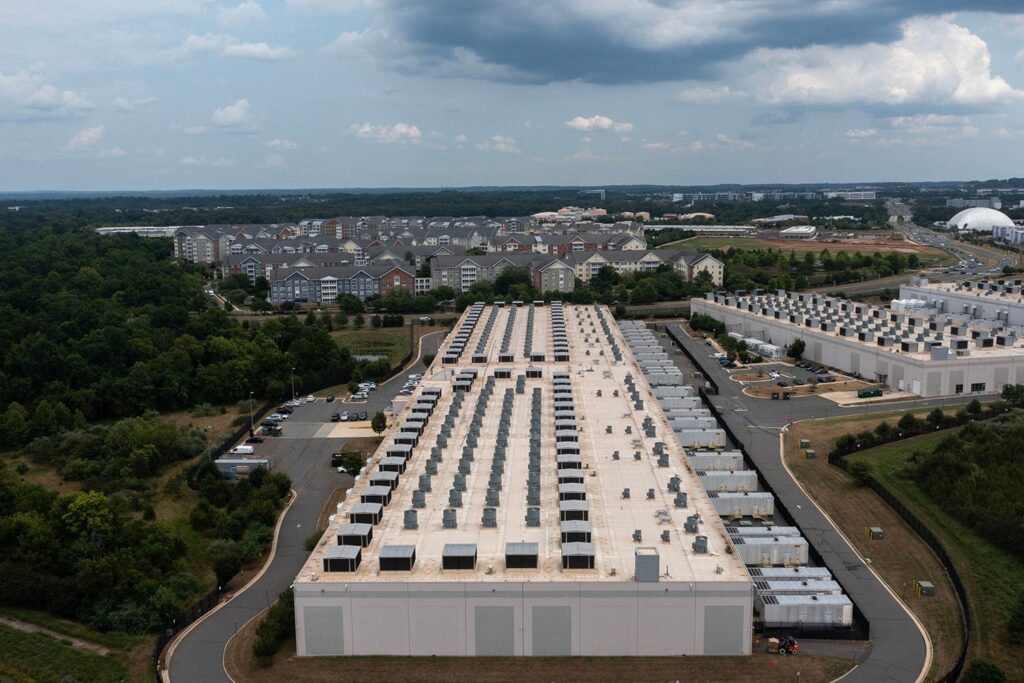The next industrial revolution driven by AI is set to change global dynamics. Unlike past revolutions that had specific centers, this one is already global, relying on data centers as its backbone. These facilities require significant energy and resources, and their relevance is highlighted by the U.S. investment of over $600 billion in AI infrastructure by 2026. However, aging power grids and high demand create challenges for meeting energy needs. Countries must strategically choose where to build data centers to ensure economic and technological advantages while addressing national security concerns. As nations focus on AI development, partnerships and infrastructure will be crucial for empowering this transformative technology and determining future leadership in the global economy.
Title: The Geopolitical Importance of AI Data Centers
In the current era, where technological advancements are rapidly reshaping global dynamics, artificial intelligence (AI) stands out as a pivotal player. Unlike past industrial revolutions, which were often centered within a single nation, the AI revolution is global from its inception. This presents unique challenges and opportunities for countries and companies alike, as they must navigate the complexities of building the necessary infrastructure to support AI technologies.
Data centers, which serve as the backbone for AI applications, are essential for transforming energy and data into valuable insights. It’s estimated that leading U.S. tech companies will invest over $600 billion in AI infrastructure by 2026. However, these data centers do not come without concerns. They often hold sensitive information and high-end semiconductors, leading to national security considerations.
While the U.S. currently boasts a significant number of data centers, it faces infrastructure limitations. Challenges such as an aging energy grid and limited available land threaten to hinder the growth required to meet increasing AI demands. Comparatively, other nations, particularly China, are moving rapidly to establish their own data center capabilities, making strategic partnerships essential for maintaining competitiveness.
Countries like Canada and those in the Middle East are emerging as promising hosts for data centers, given their abundant natural resources and supportive regulatory frameworks. As technology evolves, identifying partners that share aligned interests will be vital for creating a reliable and secure global network of data centers.
In conclusion, as AI continues to usher in transformative changes, nations must collaborate to navigate the complexities of data center diplomacy. This collective effort can not only ensure that the infrastructure for AI is robust but also foster greater global stability and prosperity.
Tags: AI, Data Centers, Geopolitics, Technology, Infrastructure, National Security, Global Partnerships, Energy, Innovation, Digital Economy.
What is Data Center Diplomacy?
Data Center Diplomacy is the way countries use their data centers and technology to build relations and influence global politics. It involves sharing tech resources and cooperating in areas like cybersecurity and data protection.
Why is AI important in Data Center Diplomacy?
AI helps to process large amounts of data quickly and make decisions. It is key for countries to gain insights, improve security, and enhance communication in a digital world.
How do data centers affect geopolitics?
Data centers can impact power dynamics between countries. They can provide strategic advantages in areas like military operations, economic competition, and information sharing, influencing international relations.
What challenges come with Data Center Diplomacy?
Some challenges include data privacy, security risks, and different regulations in each country. Balancing national interests with global cooperation can also be difficult.
How can countries work together on AI infrastructure?
Countries can collaborate by sharing best practices, investing in joint projects, and creating international standards for AI use. This can help improve trust and reduce tensions in a competitive digital landscape.






